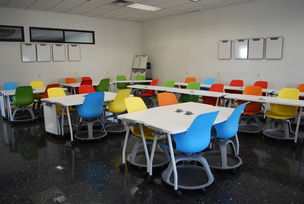
The terrain of technology has brought some forced changes to the landscape of education, as we knew it before the explosion of technology. Gone are the days of the teacher being the primary holder of knowledge or content. Now, students can find content on any topic through a simple Google search or other search engines. This new terrain can pose a new challenge to teaching and learning. Since educators are life-long learners, many have risen to this new challenge and are leading their students in their own discoveries, while they take on the role of facilitators in the classroom.
I hope that the two takeaways from these visits will spark a new desire to expand your learning as an educator. In fact these are applicable to anyone who wants to grow their understanding of learning processes. Students are been exposed to more empowering ways of learning and they are taking ownership of their learning.
1. Teaching students how to think about their own thinking or learning. In education, we call this metacognitive skill. At one of the elementary schools in North Carolina, the teacher led the students in curating their own information, and organizing the information in a way that helped them understand the social studies concept they were learning. Afterwards, the teacher had students work in groups to create their own stories using what they had learned. For elementary students this was a great way to extend their thinking beyond what was taught. Many of the groups used LiteracyShed to create their stories.
2. Using questions as a teaching tool. Teaching students the “why” questions rather than the basic “how to” questions builds comprehension. Why questions help students construct their understanding in relation to the concept or topic. On the order hand, “how to” questions provide the framework for “why” questions. At the high school visited, the teacher asked layered “why” questions in the biology class to help stimulate students’ critical thinking. Using divergent questions, the teacher led the students to deeper thinking that required students to analyze and make inferences on the concepts they learned. Students then used Augmented Reality to bring their acquired knowledge to live.
Happy Learning! Love & Blessings!
"The simple believe anything, but the prudent give thought to their steps." Proverbs 14:15 (NIV)
 RSS Feed
RSS Feed